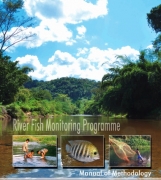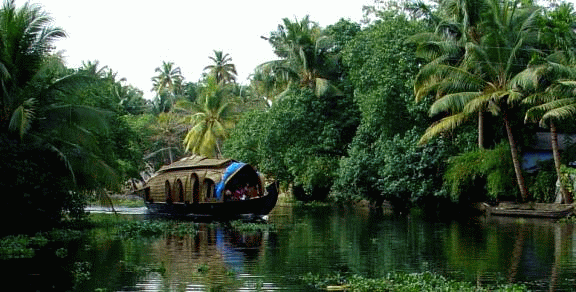Ashoka Trust for Research in Ecology and Environment (ATREE)
River Fish Monitoring Programme - Manual of Methodology by Kerala State Biodiversity Board
Posted on 07 Jun, 2010 03:33 PM Measurement of riverine biota, particularly benthic macroinvertebrates (such as crustaceans and aquatic insects) and fish, has become a widely accepted method of identifying the structural or functional integrity and the overall health of a riverine system. This manual from the Kerala State Biodiversity Board (KSBB), describes in detail the field procedures to be followed in such fish monitoring/measurement surveys, conducted for riverine ecological systems.
Measurement of riverine biota, particularly benthic macroinvertebrates (such as crustaceans and aquatic insects) and fish, has become a widely accepted method of identifying the structural or functional integrity and the overall health of a riverine system. This manual from the Kerala State Biodiversity Board (KSBB), describes in detail the field procedures to be followed in such fish monitoring/measurement surveys, conducted for riverine ecological systems.
KSBB has taken up this manual publication effort, in the conxtet of a state-wide fish monitoring programme, that aims to survey all the 44 rivers of Kerala with the involvement of resource persons from local colleges, research institutes, experts and fisherpeople community.
Vembanad Fish Count - Report of the Participatory Fish Resources Surveys of Vembanad Lake (Kerala) done in 2008 and 2009 by ATREE
Posted on 03 Jun, 2010 06:23 PM The Vembanad estuarine system, the largest of its kind on the west coast of India is known to be abundantly enriched with diverse fishery resources, providing feeding, spawning and rearing areas for a very large proportion of commercial (fin) fish and shellfish. However, ecosystem health of the Vembanad wetlands is alarmingly declining due to a variety of reasons - obstruction of river courses, sand mining & habitat destruction, loss of riparian canopy cover, encroachment, pollution and unethical fishing practices. Reduced summer flow due to drying up of rivers and pollution hazards from agro-chemicals and sewage also lead to mass mortality of fishes. Depletion of fishery resources has changed this ‘inland fish basket’ to an ‘inland wastebasket’, driving the fisherfolk, the primary stakeholders of the lake into a livelihood crisis.
The Vembanad estuarine system, the largest of its kind on the west coast of India is known to be abundantly enriched with diverse fishery resources, providing feeding, spawning and rearing areas for a very large proportion of commercial (fin) fish and shellfish. However, ecosystem health of the Vembanad wetlands is alarmingly declining due to a variety of reasons - obstruction of river courses, sand mining & habitat destruction, loss of riparian canopy cover, encroachment, pollution and unethical fishing practices. Reduced summer flow due to drying up of rivers and pollution hazards from agro-chemicals and sewage also lead to mass mortality of fishes. Depletion of fishery resources has changed this ‘inland fish basket’ to an ‘inland wastebasket’, driving the fisherfolk, the primary stakeholders of the lake into a livelihood crisis.